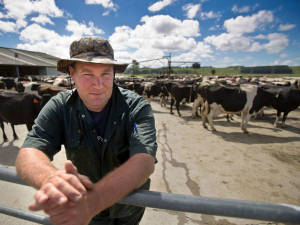Federated Farmers and DairyNZ say they are pleased the Government is investing in new technologies and tools that could solve the agricultural emissions issue.
"Nitrate and methane inhibitors, gene editing, animals bred for their lower methane ‘burping’ - they’re the kind of advances that will enable New Zealand’s farming sector to continue to perform for the nation’s economy while maintaining our world-leading meat and dairy carbon footprint," says Federated Farmers national president and climate change spokesperson Andrew Hoggard.
It will be important, says Hoggard, to find out how the newly announced Centre for Climate Action on Agricultural Emissions fits with existing bodies like the NZ Agricultural Greenhouse Gas Research Centre, the Pastoral GHG Research Consortium (PGGRC) and the international bodies New Zealand partners with.
"New Zealand farmers have been funding millions of dollars into greenhouse gas mitigation tools since 2003 via the PGGRC," Hoggard says.
He says it will also be crucial that the sector’s regulatory framework is worked on at the same time as acceleration of research and commercialisation of technology and tools so farmers can “get on with using them”.
"And Feds again make the point we’ve made many times previously - serious investigation and society-wide discussion is needed on the role genetic technologies - particular gene editing - can play in the thorny environmental issues confronting us. Feds supports giving food producers and consumers the choice with gene editing technology.
"If we are not open to all solutions, we risk losing our world-leading emissions footprint as other countries embrace the innovation we are ignoring."
DairyNZ chief executive Tim Mackle says the additional funding and the Centre will add to significant investments already made by the sector into research and development and will therefore accelerate the development of technology and tools to drive further emissions reductions by the farming sector.
“Because Kiwi dairy farmers are already so efficient, there’s no silver bullet. We need new high-impact technologies and to accelerate their uptake to continue reducing our environmental footprint, while enabling farmers run successful businesses.”
Mackle says DairyNZ has advocated for the Government to invest more in supporting the sector to play its part to address climate change.
“So it’s great to see our work on behalf of farmers coming to fruition,” he says.
“We’ll continue to advocate for how this R&D funding is invested, as new solutions develop. This will bring the best outcomes for farmers and New Zealand into the future.”
Kiwi dairy farmers already have the world’s lowest carbon footprint for on-farm milk production and want to retain that competitive advantage, Mackle says.
“We already have a world-leading position with low carbon dairy and a world-first emissions reduction plan in He Waka Eke Noa. This new increased investment will help dairy improve our position even further.”
The dairy sector, including DairyNZ, is investing in a range of research into new solutions, including methane inhibitors and low methane feeds. The sector is working together on ways to adapt overseas technology solutions to New Zealand farming systems.
“The sooner we get new technology for farmers, the sooner we will meet our goals,” says Mackle.
“It’s great to see the Government signalling all sectors need to play their part – including agriculture, transport and energy. All Kiwis have a role in this, including rural areas, towns and cities.”



















